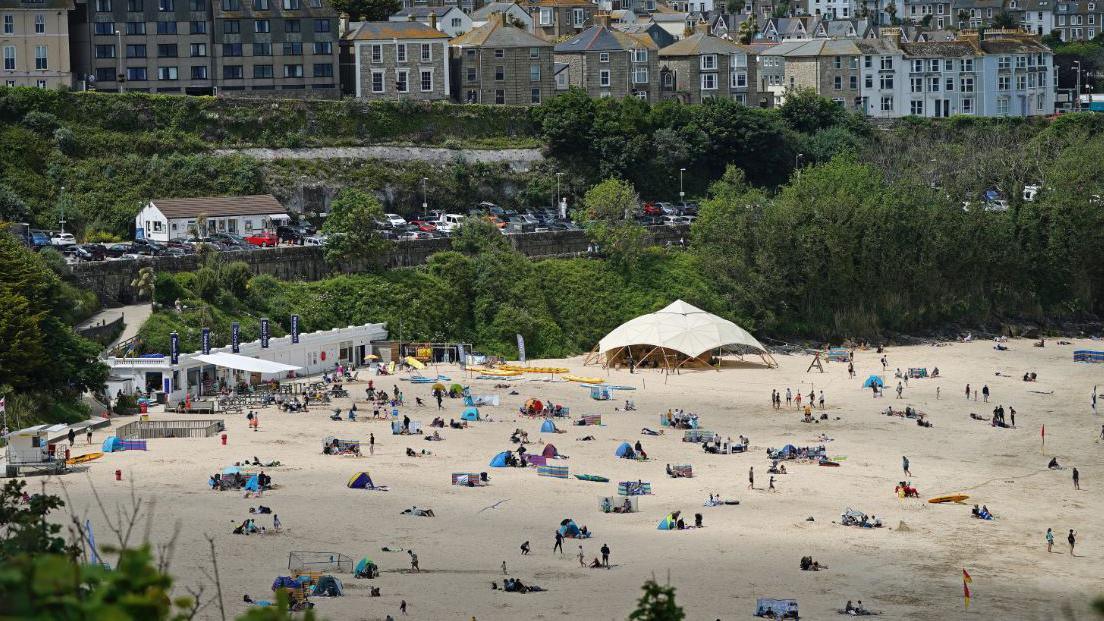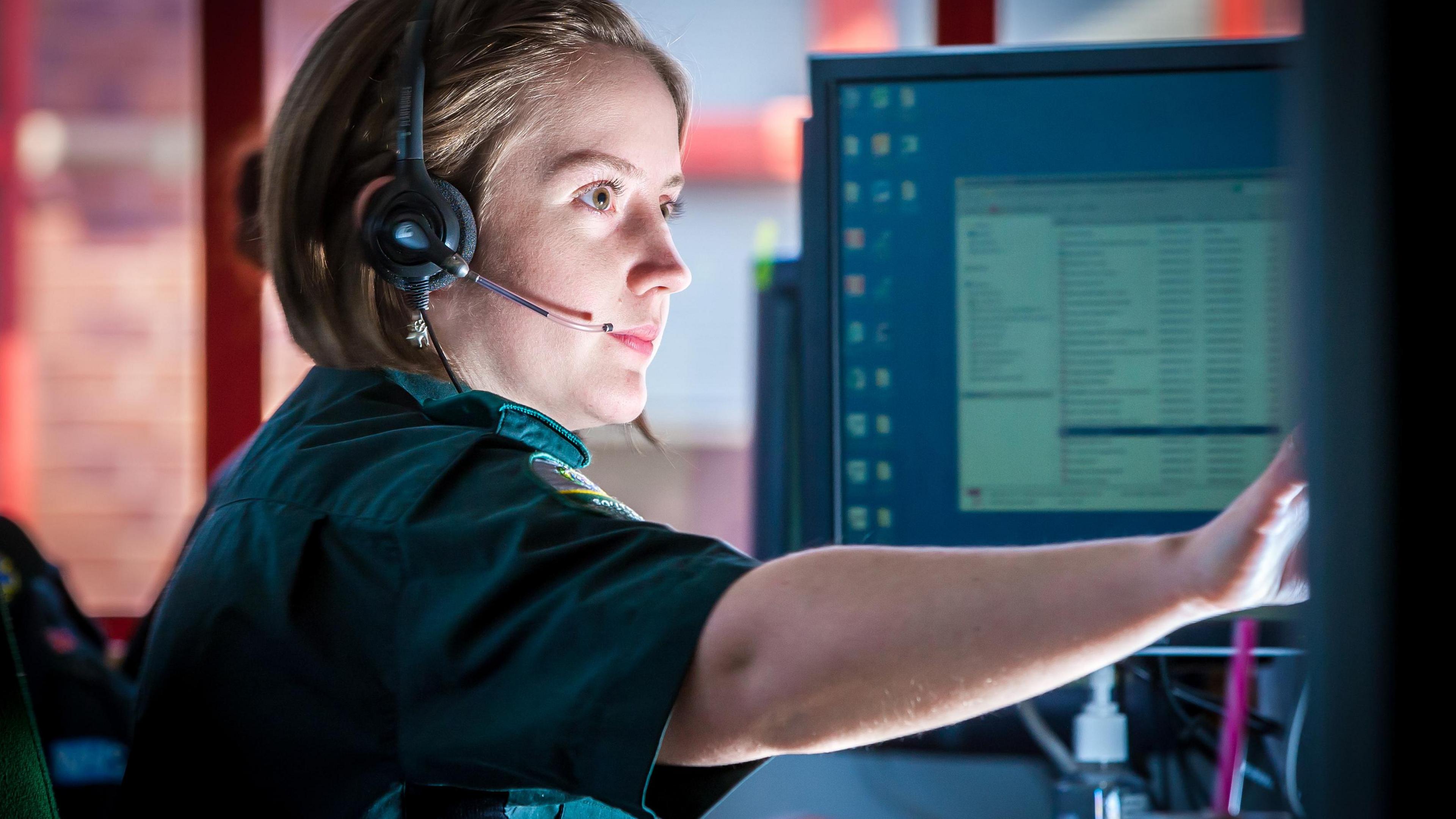Ambulance service gets call every 25 seconds amid 'highest demand ever'

Porthminster beach in St Ives: Warm weather has brought tourists to the South West
- Published
An ambulance service has been getting a call every 25 seconds, it has revealed.
South Western Ambulance Service (SWASFT) said warm weather and high visitor numbers to the south-west of England were behind the calls on Monday.
Crews were facing the "highest level of sustained demand on our 999 service we have ever known", said chief executive Will Warrender.
He urged people only to call 999 in a life-threatening emergency.
SWASFT, which covers Cornwall and the Isles of Scilly, Devon, Somerset, Dorset, Bristol, Wiltshire, Gloucestershire, said there were 3,511 incidents on Monday, "one of the busiest days in our history".
It followed a "very busy" weekend when there were nearly 3,300 incidents a day, or nearly 140 an hour.
The number of incidents is up 15% on the same time last year and 26.1% higher than the same time two years ago.
The service blamed "a combination of factors including continued high visitor numbers in the region and the warm weather".

Call handlers dealt with 3,511 incidents on Monday
Mr Warrender said to "continue to help those with the most serious conditions", the service needed "everyone’s help".
He reminded people "only to call 999 in genuine, life-threatening emergencies".
These include patients who are unconscious, experiencing breathing difficulties, heavy bleeding, severe burns, or having a severe allergic reaction.
He said people should not ring the service back to ask for an estimated arrival time, and should only call back if the patient’s condition worsens or they no longer need an ambulance.
Patients who need urgent medical help or advice are encouraged to visit 111.nhs.uk, external or to call 111.
"This will ensure they get the right care, and we can focus on those most in need," he said.
For ongoing or non-urgent medical concerns people should contact their local GP surgery or a local pharmacy.